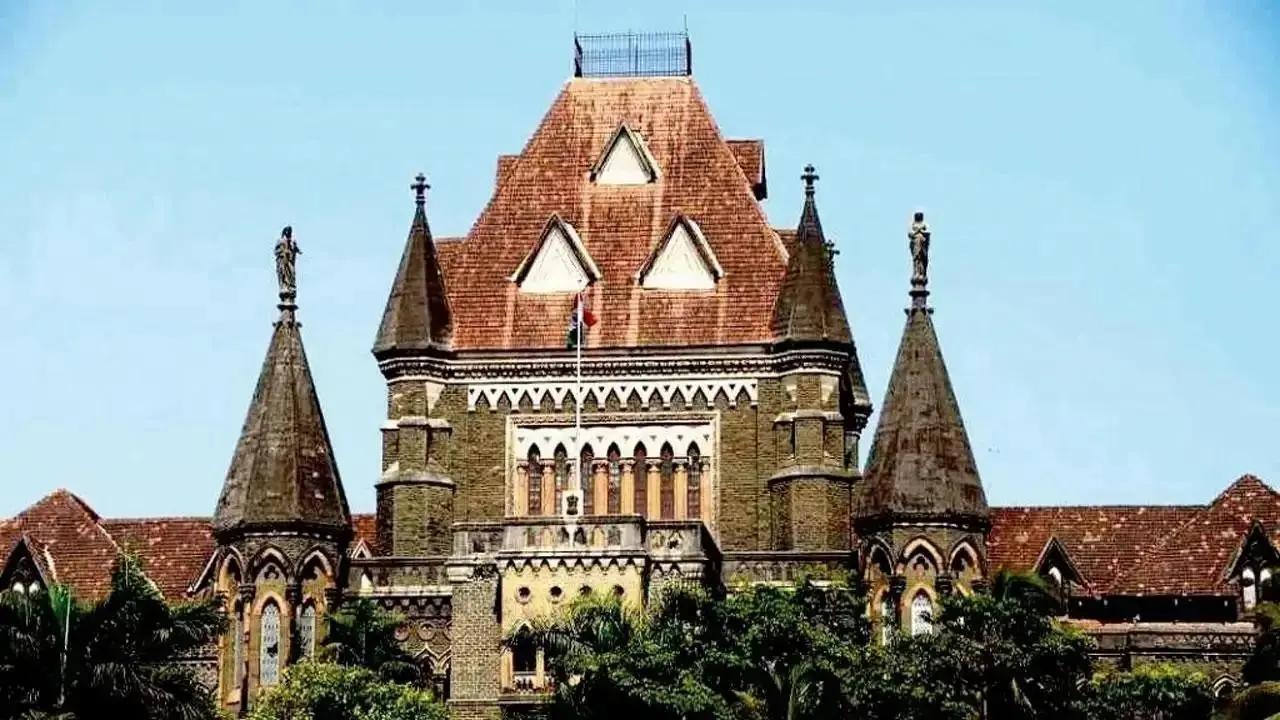Footpaths and public roads in Mumbai cannot be allowed to be taken over by unauthorised hawkers permanently, the Bombay High Court said, suggesting the idea of pop-up market or mobile vending concept

Bombay High Court. File Pic
Footpaths and public roads in Mumbai cannot be allowed to be taken over by unauthorised hawkers permanently, the Bombay High Court has said, suggesting that the city's civic body consider the idea of a pop-up market or mobile vending concept.
A division bench of Justices Gautam Patel and Kamal in its order of April 16, a copy of which was made available on Thursday, said the constitutional right of one person cannot mean violation of the right to a free and safe footpath for pedestrians.
The bench last year had taken suo motu (on its own) cognizance of the issue of illegal vendors in the city.
It said a fundamental question that arises in the petition is who is this city for as there are rival contestants for this space.
Public footpaths and public roads cannot be allowed to be taken over by unlicensed vending on a permanent basis, the court said.
Apart from anything else, this will create a conflict within Article 21 and within Article 14 of the Constitution, it said.
It is inconceivable that an unlicensed street vendor can claim permanency on a public street, the court said, observing that this would impact the constitutional rights of pedestrians and other tax-paying citizens.
We do not see how the Article 19 right (to livelihood) claimed by an unlicensed vendor on a public space can translate into a right to the land at the cost of other users of that public space," the HC said.
The right to livelihood can always be regulated as per the law, it said.
When an unlicensed street vendor begins to claim permanency and protection from removal in a public space, what is being advocated is the deprivation of fundamental rights that equally vest in others to the use of that public space," the HC said.
It is inconceivable that anybody could say that this piece of earth in Mumbai which is public land is under my occupation and none may remove me from it," the court said.
The HC said it was suggesting a fresh approach that gives heft to the mobile vendors' concept or a pop-up market that permits hawkers to sell their items at a particular place at particular times.
This would contemplate allowing street vendors to use only temporarily and under strict monitoring, control and supervision, an area and, after the time is over, to return the public land to its original purpose, the court said.
The bench noted that a designated hawking zone may have permanency for the utilization of space and demarcation of areas whereas a mobile vending zone has no such permanency.
It is by definition temporary. The zone itself moves from place to place, and with the zone should move the vendors who are licensed in those zones for those hours," the court said.
Senior counsel S U Kamdar, who represented the Brihanmumbai Municipal Corporation (BMC), said the issue of illegal and unauthorised hawkers was a constant struggle as whenever such vendors are removed, they often return the very next day.
The court noted that many street vendors provide goods and services to the people of the city and no one was asking whether the vendor has a license or not.
Hence, such vendors could be permitted to sell their goods at a particular place at a set time, it said.
We believe this is something that the BMC should consider because it would enable the BMC to then identify where, when and who should be permitted and for what period of time," HC said.
There is no logical reason why such a system of protocol cannot be applied to temporary street vending or mobile vending," the court said.
The bench noted that this would require a policy on a ward-to-ward basis as what is suitable for south Mumbai may not be suitable for other parts of the city.
The bench noted that pedestrians' right to use a footpath cannot be compromised.
Due to unlicensed hawkers on the footpath, the court said, pedestrians are forced to walk on the roads. Now motorcars cannot be expected, at least as yet, to fly and they have only one space to use, namely the road, HC said.
The bench also called for the creation and maintenance of a database of all street vending licenses granted for easy monitoring.
The court posted the matter for further hearing on June 24 and said it was up to the BMC commissioner to consider the suggestions made by HC.
This story has been sourced from a third party syndicated feed, agencies. Mid-day accepts no responsibility or liability for its dependability, trustworthiness, reliability and data of the text. Mid-day management/mid-day.com reserves the sole right to alter, delete or remove (without notice) the content in its absolute discretion for any reason whatsoever
 Subscribe today by clicking the link and stay updated with the latest news!" Click here!
Subscribe today by clicking the link and stay updated with the latest news!" Click here!










